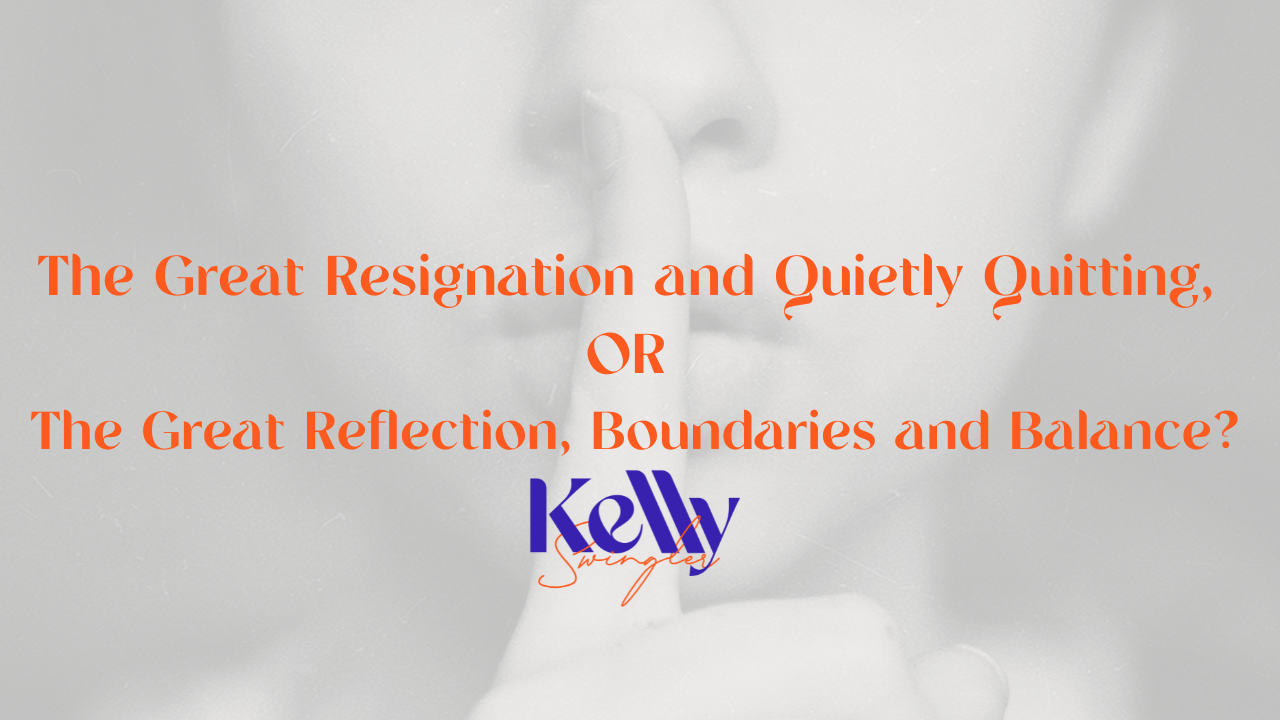Burnout In The Boardroom: What's The Cost?

-
In 2023 AXA Reported that Burnout was costing the UK economy £28bn a year.
-
Harvard Business Review reported that in the US, the cost of Burnout was more than $500bn a year.
-
WHOOP Unite reported that the costs to the global economy are more than $1 trillion a year.
-
WHOOP also estimated that the cost of turnover for each person is 1.5 to 2 times their salary in both loss of knowledge and skills, and the cost to hire someone new.
And it doesn’t stop there.
Varying reports and surveys from Gallup, Workhuman, Deloitte and Harvard Business Review over the years have stated that between 62% and 70% of Executives are or have considered leaving their jobs for workplaces that care more about wellbeing, and in the same studies, 50% to 60% of people outside of management roles want to quit for similar reasons.
Yet still, so many Exec teams refuse to admit that Burnout is a thing that’s worth focusing on or talking about.
Studies show that 65% of leaders have experienced ...
Self-care isn’t a one and done (and neither is wellbeing in the workplace)

Shall we play a game of true or false? Come on, it’ll be fun!
Ok, here goes.
I ran a 5k once so now I can just put on my running shoes and run a marathon – true or false?
I did some reps with my 15 kg dumbbells so now I’m ready to win the Olympic weightlifting team – true or false?
Ok, how about this one …
I went to bed really early last night as I’ve been feeling a bit run down over the last few weeks, and I can now limit my sleep for the rest of the year and stay healthy – true or false?
In case you need me to tell you the answers, they are false, false, and false, but you know that already.
So why when it comes to wellbeing in the workplace do you think that one event a year is going to make the difference for you and your people?
When I started my career in HR back in 1998, I wanted to stop the Monday-to-Friday dying syndrome that I saw so many of my friends and family experiencing on a daily basis.
I genuinely wanted to change the world of work for the better. To creat...
Weekends: Rest, Recharge or Recovery?
What do you use your weekends for?
Rest, recharge, or recovery?
In the months and years leading up to my Burnout, weekends were about recovering from the work week that had been, and then just like a wind-up toy, I’d pop back into action, back into robot mode for the next week.
And like clockwork, I could tell you when I’d crash during my Christmas break, once I’d been the hostess with the mostess for family and friends for three days.
And not forgetting my summer holidays where I’d ended up with ‘flu’ aching and unable to move, but I forced myself to have fun with my family so that I didn’t disappoint them.
During the lead-up to Burnout, the stress is what keeps you going.
The good old primitive brain and the fight/flight response keep you moving to try and keep you safe.
In the days of hunter-gatherers, you wouldn’t sit down and have a break and a picnic with your friends whilst surrounded by wild animals, you’d be eaten alive, and this same survival response is what is keeping you going. ...
HR, what language are you speaking, and how do you ensure that you are heard?

One of the biggest frustrations I hear from my HR clients is that they don’t feel heard. At Board meetings, they feel that whenever they speak, their colleagues turn into nodding dogs, agreeing that things need to change, but not actually taking any steps outside of the Boardroom to action or implement anything differently.
HR feel that they are banging their heads against a brick wall trying to get their Exec colleagues to pay attention to any of the People stuff, whilst everyone else remains so fixated on the money and the numbers.
A question I find myself asking often is ‘Have you explained your frustration?’ and the answer is usually no. The reasoning behind this is that they think it will be a waste of time, particularly given that their colleagues have made comments before about:
· You do the people stuff
· Tell us what you want us to do and we’ll just do it
· I don’t really care about the people stuff, that’s your domain
· I’m not comfortable with the peopl...
Your voice matters

Your voice matters.
In this post I’ll be talking to you about why our voices matter, what’s in our voice, what people hear when we talk and a learning experience following a podcast interview.
I have been on a self-development, self-discovery, self-learning and self-unlearning journey for years, decades even. Sometimes it can be exhausting and I have moments where I think it would be so much easier to live in complete ignorance and pretend that everything and life is ok.
When we start on this deep dive self-discovery path it is endless and constant and every time you think that you’ve got something nailed and everything will become easier for you, it’s like you’ve just peeled back another layer of the onion and there’s something new to come to terms with.
I find that the more I uncover and discover about myself and recognise I still have many repeating patterns of self-sabotage, something else comes up to bite me.
But I’m always learning something, whether I’m reading, on a co...
Self-sabotage

How can we raise our awareness of what's happening to us when we self-sabotage and are there any repeating patterns we can look out for?
I’m not perfect and I still have these old patterns and old behaviours of self-sabotage that can still come up to the forefront, either when I’m not in my best place or if I’ve been letting go of my non-negotiables.
What happens to our brains, to our thoughts when we end up in this fight, flight, freeze mode? What can happen when our stress levels increase and when we’re not putting our wellbeing first and doing what is best for us?
It’s in this state that we can fall into our old patterns and even though we know that we’re doing things that aren’t good for us, there is that part of our brain that just tells us to keep going.
I invite you to give the self-sabotaging part of you a name. I’ve got 3 parts that I recognise within myself. Twins called Edna and Edith and The Warrior within.
If you recognise the self-sabotaging part of you, the part th...
Less Is More?

In a world full of polarities where one side of the fence is telling you to do more, hustle harder and push yourself to the limit, the other side is telling you to do less, focus on less, and be surrounded by less if you really want to succeed.
If I’m honest, I’ve mostly lived on the hustle-harder side of the fence. A fierce overachieving, high-performing, recovering perfectionist who struggles with ‘slow and steady’, with one pace, fast. If you want sh!t doing, I’m your woman. I gave up on ‘to-do’ lists years ago, instead having a ‘get done’ list, where if it’s down it's done, and I’ve always stuck with that.
In my corporate career, I was the innovator, the rebel, the first one to try things differently, always striving for more, always working harder, always coming up with new ideas and new ways to do things, and it’s been pretty much the same in my own businesses since I left the corporate world in 2014.
And yet, throughout 2022, I found myself wanting less.
Not wanting to achie...
The Great Resignation and Quietly Quitting, OR The Great Reflection, Boundaries and Balance?

When we hear about the Great Resignation and Quietly Quitting, we seem to think of our people as disengaged, unhappy or no longer committed to their roles, but, what if this is exactly the balance that we’ve been needing to create in the workplace for a long time?
When I first started my career, I worked my contracted hours. I worked in retail and I was either working when the store was open, or my contracted hours. I didn’t have a laptop or mobile phone to allow me to work from home, I worked at work. And when I wasn’t at work, I wasn’t working.
As my career developed I started to work additional (unpaid) hours, staying for longer in the workplace, but even then, when I left the workplace, I was no longer working.
I changed sector, worked in growing organisations and only in 2011 was I issued a work laptop and phone. Between 2006 and 2011, although I’d asked for the tech to allow me to work from anywhere at anytime, it wasn’t granted. The CEO was set on the fact that you worked whi...
Is It Time To Start Performance Managing Your Top Performers?

“Lazy bastards don’t burn out”
I was part of a panel discussion last week talking about burnout and Lucyna Milanowska made this comment, “lazy bastards don’t burn out” and she’s right. I wrote an article years ago about who is looking after your top performers and said a similar thing, because it’s true. The ones who do the minimum, will not reach burnout.
A month or so ago I interviewed Denise Duffield-Thomas for my podcast and she’s a self-confessed lazy perfectionist, prone to burnout. When she talks about being lazy, she wants to make the biggest impact with the least amount of effort, and so she’s always looking for the quickest and easiest way to get her to her goal. We talked about the importance of boundaries, and when she pushes to hard and becomes exhausted, she’s prone to burnout, and this is a multi-millionaire with a lot of help and support, who also likes to do a number of things herself and if she overthinks and overstretches, burnout creeps back in.
In business, and ...
Progress?

It’s Friday night, I’m sat at a rooftop bar in London and the building opposite has Progress engraved in it, and I begin to question the word. The building had no name or number that I could see, I have no idea what it stood for, but it’s left me thinking about progress. At the time that the building was built, was progress a mission, did they feel that enough was being made fast enough, was it a stamp in time in memory of progress that had been made – I have no idea.
This same weekend has seen the Queen celebrate 70 years on the throne. Family commitments, work and travel meant that I’ve not watched or participated as much as I might have done in previous years in Jubilee celebrations, and for the first time, I’ve really questioned whether a promise that was made 70 years to ‘reign until the day I die’ really demonstrates progress.
Until this year I’d always thought of it as honourable, this time round I question whether someone who is unable to fulfil all commitments and still hold...




